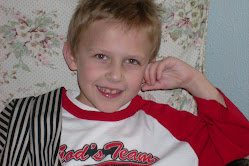Forgiveness School
quoted directly from Of Mess and Moxie by Jen Hatmaker!
"Forgiveness.
Oh, it is so terrible, isn't it? Just awful. It is the one thing we don't want to give. Maybe it helps to discuss what forgiveness is not first. Let it be said: forgiveness is not condoning evil, not forgetting, not brushing something under the carpet, not a free pass. It does not mean minimizing the injury and, consequently, your pain. It doesn't shrink an offense down, making it smaller in memory, in impact. It doesn't shrug off loss with a "no real harm, no real foul" response. It does not mean conceding, surrendering to a different version, or yielding your right to dignity. It never communicates that this didn't happen, it didn't matter, or it didn't harm.
Furthermore, it might not mean reconciliation. Some breaches are restored and relationships mend, but some are not safe. They may never be safe. The other person may be entirely unsorry, and there is no path to harmony. Forgiving chronic abusers does not include jumping back into the fire while it is still burning; that is not grace but foolishness. Forgiveness operates in an entirely different lane than reconciliation; sometimes those roads converge and sometimes they never meet. Forgiveness is a one-man show.
One last thing: forgiveness rarely equals a one-and-done decision. Very few decide one day to forgive and never have to revisit that release. In most cases, it is a process that takes months and sometimes years of work, and just when you think you have laid an offense down, it creeps back up in memory and you have to battle it anew. Just because this work is stubborn does not mean you are failing or will never be free. Forgiveness is a long road in the same direction.
Do you ever get the impulse to hang on for dear life? Like someone should stand guard over your injury, and if no one else will, you better? Nurturing anger feels fair, a witness to injustice, like it might hold an open door for acknowledgment or forthcoming repentance or confirmation. If you forgive, where is your justice? Where is your apology? How will this ever be made right? Keeping an offender on the hook leaves room for judgment, which we want deferred for our own sins but rigorously applied to this inflicted on us.
But I've learned keeping someone on the hook really only keeps me on the hook. In attempting to lock up an offender, I imprison myself, captive to anger, defensiveness, and pain, replaying a story that becomes a mental loop I cannot escape from, trapping other innocent relationships and scenarios in a toxic spiral that poisons everything. I act out of woundedness instead of freedom, which makes me paranoid and suspicious, crushing everything Christlike and tender and creating a worse mess than I had in the first place. God called us to a forgiving path, not only for a mended community but also for mended human hearts.
Brennan Manning wrote, 'This is the God of the gospel of grace. A God who, out of love for us, sent the only Son He ever had wrapped in our skin. He learned how to walk, stumbled and fell, cried for His milk, sweated blood in the night, was lashed with a whip and showered with spit, was fixed to a cross, and died whispering forgiveness on us all.' Jesus walked this sacred road first; we cannot claim His mercies without also claiming His practices. We mustn't expect a resurrected life when we skip over the cost, the commission, the cross.
Back when I was nurturing my anger, I'd spend a good half day replaying, remembering words, conversations, correspondence. I practiced comebacks and defensive maneuvers, poking holes in the other story like a State Champion debater. I'd reread e-mails and talk through it all yet again with Brandon or whoever would listen, God bless and keep anyone near me during that season. I expended a great deal of energy, getting worked up again, re-furious, re-hurt. I mourned fresh an apology that was never coming. If I was feeling it, I worked up some tears. I tidied up the narrative a bit more, removing nuance and defining motives, leaving me cleaner and the offender dirtier than we actually were. I imagined catastrophe befalling that person, which made me profoundly happy.
You know what that other persons likely did that day? Ate a sandwich, answered some e-mails, had a meeting, returned some pants to the mall. I was the only one paying the piper, spending energy and mental space not on healing but on imagined vindication. What a waste! That person was not on the hook in the slightest, but I sure was, day after day, month after month, disastrously, year after year. I deferred my own peace, and the only loss was mine.
The work of forgiveness is so challenging---the actual work of it. The naming, grieving, empathizing, releasing. It's like a death. A death of what we wanted, what we expected, what we'd hoped for, what we deserved and didn't receive. Burying those expectations, because they are indeed dead, is truly cause for grief. Expect to feel profound loss as you put them six feet under. Into the casket also goes control, exoneration, maybe even resolution. Those don't belong to you. We don't get to control other people or outcomes. I am as devastated about this as you.
How to begin? Oh heavenly mercies. There isn't a template for this work, but I can tell you my early steps to forgiveness. God was super clear: Pray for this person every day, which was the meanest thing He ever said to me. I was furious. I think I even said something petulant to God like, 'The hell I will!' and He was all, 'Do it Potty Mouth.' So my prayers started rather, well shallow: Please don't let this person get hit by a car today. Amen. That was as far as I could go. The anger around my heart was still stretched tight. I was obedient to the letter of the law only.
But as that practice went on, something started to happen. God loosened that old anger bit by bit, and the prayers gave way to deeper, more meaningful requests. Mind you, the increments were small and took more time than I wanted to give, but I started thinking of that person as the kid they once were, whose story I knew included loss and abandonment. God began showing me triggers I had ignited carelessly, tapping into lifelong wounds that set off a disproportional reaction. Prayer awakened enough humility to own my contribution to the free fall, a difficult admission. And would you believe after staying the course long enough, I developed a tenderness toward the person who hurt us, and it was sincere. Prayer didn't heal the relationship, but it healed me.
God is still in the miracle business, and sometimes those miracles are in us.
While forgiveness might feel like abandoning justice, it actually sets us free. It liberated us from the crushing responsibility to oversee the resolution, which may or may not ever come. It removes any authority another person holds over our wholeness; it steals its power. Surprisingly, it can even bring us to the point where we wish our offender well, where we desire his or her peace too. It gently takes our minds and hearts and attention and brings them back to the present, to be with the ones who are here. Forgiveness gives us back our life and gives us back to our life. It is holy and hard work that says to God: Here is this sad thing. It is all Yours to fix or mend or redeem or simply bear witness. I am praying my hands off and freeing them up for other work.
We bury what we wanted and accept what we have.
But then, new life. Rising up from the grave, like tender little shoots. So small as first. So fragile. But forgiveness clears the way for new growth, even if the other person is completely unrepentant. We can still live. We can still be vibrant. We grow and develop and find beauty again, shoots of hope pushing up through the rubble. And soon enough, when we nurture grace and release instead of anger and resentment, a bloom, an unfolding of life again.
Two quick words: If the person who hurt you has a history of mainly healthy behavior, if they've been mostly safe, by all means, press not only into forgiveness but reconciliation. A broken relationship mended by forgiveness can be even stronger than it was before. Henri Nouwen wrote, 'Forgiveness is the name of love practiced among people who love poorly. The hard truth is that all people love poorly. We need to forgive and be forgiven every day, every hour increasingly. That is the great work of love among the fellowship of the weak that is the human family.' Confrontations, difficult conversations, these are hard, I know. But better to prioritize a restored relationship than let it go down without a fight simply because we are conflict averse. Earth is indeed Forgiveness School.
Second, forgiveness comes easier to people who regularly ask forgiveness themselves. It is mature Christian practice to own our offenses and remain humble enough to apologize when we've wounded, intentionally or not. This posture makes a tender people, a softer family with softer edges. All of us love poorly at some point, and infusing our community with ownership and repentance is contagious. Say you're sorry. Ask forgiveness. This leads not only to stronger relationships but to better humans, and this world needs better humans.
It is worth the work. Beth Moore wrote on Twitter: 'God is raising you mighty and mighty doesn't come pretty. Pay the price.' The cost of forgiveness is high but the payoff is higher: health, peace, wholeheartedness, grace. It goes on: resilience, maturity, compassion, depth. God raises us back up mighty in love, through the pain, through the mess, stronger than before. Forgiveness does not erase your past--a healed memory is not a deleted memory--but it does enlarge your future, increase your love, and set you free.
It's worth it."











No comments:
Post a Comment